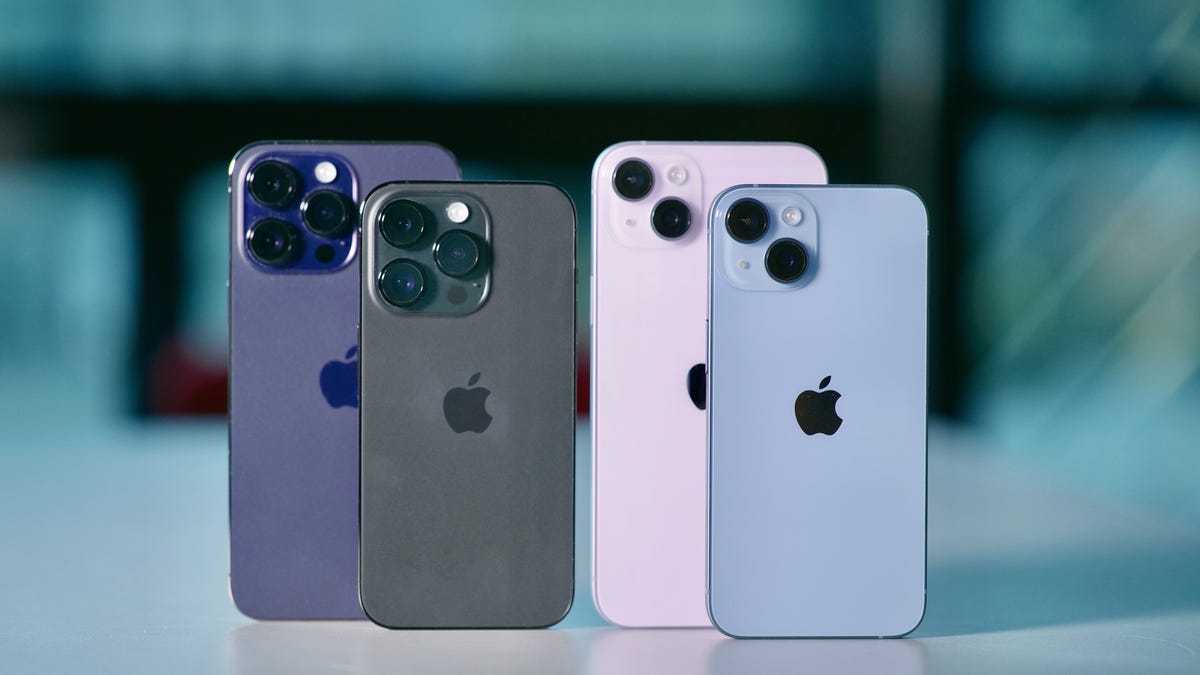iPhone 15 Pro Could See Longer Battery Life From New Chip Line
Apple's chip supplier just started mass production of its next-generation chip, which promises to deliver better power consumption.

From left to right: iPhone 14 Pro Max, iPhone 14 Pro, iPhone 14 Plus and iPhone 14.
Next-generation chips from Apple partner Taiwan Semiconductor Manufacturing Co. just entered mass production, the company announced on Thursday. TSMC is highlighting the new chip's reduction in power consumption, possibly signaling longer battery life for the iPhone 15 Pro and Pro Max.
The new chips will be built on a 3-nanometer process, which TSMC says will require 30% to 35% less power compared to its 5-nanometer chips. However, since Apple designs its own iPhone processors, it's impossible to know exactly what to expect from the next iPhone solely based on TSMC's advancements. Instead, the news suggests that TSMC's 3-nanometer processor technology will be available for Apple to use in the next iPhone if it chooses to do so. Hardware also doesn't tell the whole story when it comes to battery life; software plays a big role, too.
TSMC is also drawing comparisons between its 3nm and 5nm chips when it comes to power consumption. The A16 Bionic processor that powers the iPhone 14 Pro and Pro Max is built on a 4-nanometer process. Still, miniaturizing circuitry generally results in better performance since more features can fit inside the chip, as my colleague Stephen Shankland points out in his coverage of the A16 Bionic.
If Apple maintains the strategy it followed with the iPhone 14 generation, its new smartphone chip will only arrive in what we're expecting to be called the iPhone 15 Pro and Pro Max. The iPhone 14 Pro and 14 Pro Max, for example, run on Apple's new A16 Bionic chip, while Apple's previous-generation A15 Bionic processor powers the regular iPhone 14 and 14 Plus. Assuming Apple keeps the same naming convention, its next iPhone chip will likely be called the A17 Bionic.
Apple didn't immediately respond to CNET's request for comment about what TSMC's new chip could mean for the iPhone 15.
Apple usually releases new iPhone models in September. There's a chance the iPhone 15 lineup could be the company's first phones to use USB-C charging instead of Apple's proprietary Lightning connector thanks to new regulations from the European Union. Otherwise, rumors suggest a periscope-style telephoto lens and new solid-state buttons could be in store for Apple's next iPhones.

